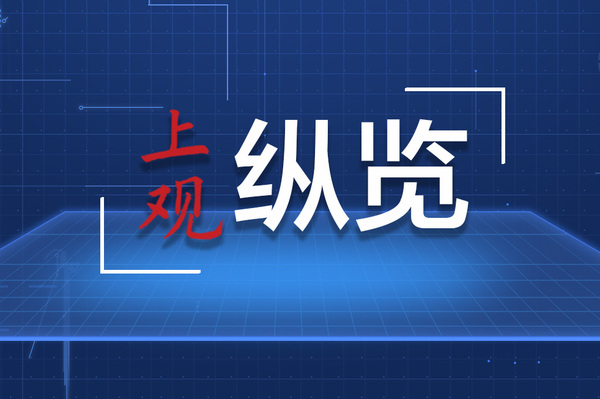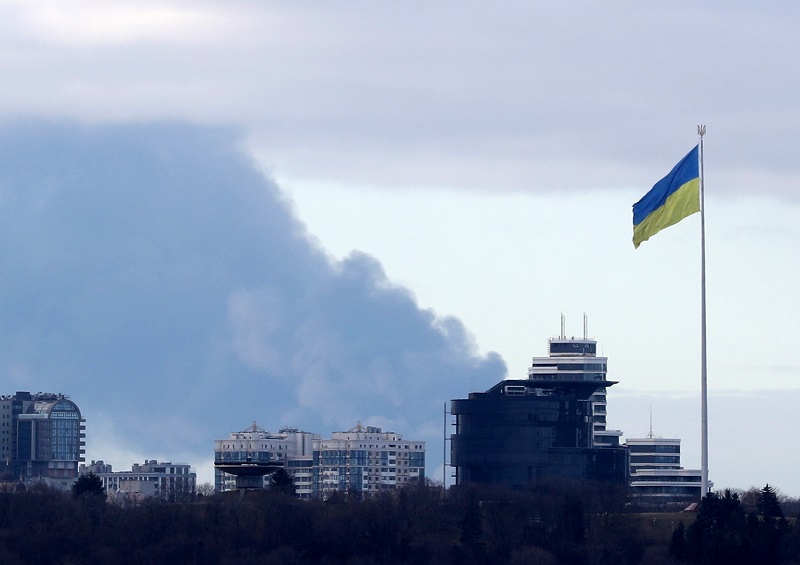Misleading Expectations - The Usual Routine of the US and the West to Smash the Chinese Economy, False Narrative
"The Chinese economy is about to collapse," "China's economic growth rate is far lower than that of the United States," "China's key economic data is disappearing," and "Shanghai has become a ghost city." Recently, a series of anti intellectual anomalies and insincere reports have frequently appeared in so-called "serious" media in the United States and the West, which is thought-provoking.
After a brief review of these reports, it can be found that such rhetoric is full of flaws and lacks novelty, unable to break free from the common practices of the United States and the West in smearing the Chinese economy, such as "double standards," "digital games," "selective blindness," and "false narratives.".
Behind these tricks, on the one hand, is long-term ideological paranoia, which has caused Western media reporters to lose the ability to objectively observe the Chinese economy; On the other hand, some media are driven by profit and use hype to smear and harvest traffic, expanding profits.
Collective strabismus under dual standards
When reporting on the Chinese economy, Western and American media have always adopted "double standards" and presented symptoms of "collective strabismus", leading to reports often falling into the trap of identical angles and extreme arguments.
Under the magic of "double standards", American and Western media have long been jumping between the "China collapse theory" and the "China threat theory": once the Chinese economy experiences cyclical adjustments or phased challenges, the "China collapse theory" becomes active; When the Chinese economy accelerates recovery or certain industries achieve rapid development, the "China threat theory" comes to light.
Recently, some Western and American media have claimed that China's economic slowdown is affecting neighboring Asia. The Wall Street Journal reported that the economic difficulties of countries such as Japan and South Korea stem from the poor economic situation in China; The Financial Times reported that countries such as South Korea and Australia are struggling to recover in the short term due to the sluggish Chinese economy.
However, these media outlets have not mentioned that the United States, under the pretext of "decoupling and breaking the chain" and "removing risks", disrupts the global market order and obstructs trade with China, which is the primary reason for the difficulties faced by relevant countries; It also did not discuss the serious impact of extreme fiscal and monetary policies in the United States and the West on global finance and trade. In addition, Western media in the United States have deliberately downplayed events such as the US debt crisis, the downgrade of US credit ratings, and the banking crisis in the US and Europe, and directly manifested their global spillover effects as silence.
Since the beginning of this year, media outlets such as The New York Times have teamed up with politicians to heavily smear the Chinese economy. On the one hand, they have called the slowdown in China's economic growth a "worrying risk" to the global economy, which is the "ultimate unknown"; On the other hand, it claims that China's emerging industries rely on government subsidies to gain "unfair competitive advantages". This approach of comparing "China's collapse theory" with "China's threat theory" does not care about the public's crisis of trust in them.
They deliberately ignored the basic fact that China's average contribution rate to world economic growth from 2013 to 2021 exceeded the sum of the G7 countries, and that the average annual growth rate of the Chinese economy in recent years has been much higher than that of the world economy and developed economies. They never mentioned protectionist measures such as the Inflation Reduction Act, which includes high subsidy provisions, when attacking China's economic policies.
The American and Western media, deeply trapped in a dual standard mindset, not only fail to treat different subjects equally, but also fail to maintain consistency in reporting on the same subject at different times, resulting in frequent situations of cross dressing.
In June 2022, The Economist reported that China's strict epidemic prevention policies have led to a "loss of vitality" in the economy; More than half a year later, this media outlet also claimed that China's optimization and adjustment of epidemic prevention policies will disrupt the world economy and bring "painful side effects".
It can be seen that many so-called "mainstream media" in the United States and the West have essentially reduced their extensive coverage of China related issues to repetitive outdated rhetoric such as "it's all China's fault" and "everything China does is wrong".
Playing "number games" to deceive the public
American and Western media often claim to be professional and impartial, and like to cite data to support their views. However, upon careful analysis, it can be found that its so-called "professionalism" is mainly reflected in playing with "number games", that is, using seemingly glamorous but not realistic and comprehensive statistical tools to whitewash the US and the West, and using statistical tools with undervaluation effects to smear the Chinese economy.
A typical example worth dissecting is that on August 26th, The Economist reported on the magazine cover that "the annualized growth rate of the economy in the second quarter was only a disappointing 3.2%, and what makes the situation worse is that an important expectation shows that the annualized growth rate of the US economy is nearly 6%."
Note that during the decade before the pandemic, the average annual growth rate of the US economy was only 2.25%. How could it possibly reach 6% now? And where did the 3.2% growth rate of the Chinese economy come from? The reason why The Economist made such a statement that goes against common sense is because it deliberately did not use the data from the National Bureau of Statistics of China, which showed a year-on-year economic growth rate of 6.3% in the second quarter, but instead used the method of "month on month discount rate" based on a month on month growth rate of 0.8% in the second quarter, assuming that the same month on month growth rate will be maintained for the next three quarters, which is equivalent to the annual growth rate. The data obtained from the month on month discount rate is clearly lower than the year-on-year data.
It is worth noting that if the month on month discount rate method is also used to measure the US economy, then the US economic growth rate in the second quarter calculated at an annual rate is 2.1%, which is still lower than China's economic growth rate. However, The Economist did not make the same caliber estimation of economic data for China and the United States.
The Xinhua News Agency reporter noticed that the statement in this report that "the annualized growth rate of the US economy is nearly 6%" comes from a calculation model made by the Atlanta Federal Reserve Bank, a subsidiary of the Federal Reserve Board of the United States, with the highest predicted value approaching 6%. The Atlanta Federal Reserve specifically stated that due to the inclusion of some data from the third quarter in the calculation formula, its predictions are not reliable and are more than twice the market's generally expected average.
Using non comparable statistical methods, selectively measuring domestic and foreign economic data, making shocking judgments, and then making high-profile hype. The distorted data of The Economist, deceiving the public and pretending to be confused, is not in line with professionalism and will only be disrespectful.
"Selective blindness" accompanied by "habitual spreading of rumors"
On August 30th, a US business insider website cited a report released by Meiqijin Investment Consulting that recent production data for key products such as cement and glass in China could not be found, accusing China of refusing to release important economic indicators and speculating that the Chinese economic situation was not good.
This has surprised many economic analysts. Because as early as August 15th, when the National Bureau of Statistics of China released data on the added value of industries above designated size, it had already disclosed detailed production data for major products, including cement, glass, and other products.
As a professional market consulting service provider and financial media, have the above-mentioned institutions really not seen these data, or have they been selectively blind? People are unaware. However, not reporting or underreporting good news about the Chinese economy, often spreading rumors and creating panic, is another way for the US and the West to smear the Chinese economy.
For example, many Western and American media outlets are enthusiastic about reporting on China's customs import and export data, but often ignore international balance of payments data. Analysts say that customs data has characteristics of varying national standards and significant seasonal fluctuations, and its comparability and reference value are not as good as globally standardized international balance of payments data.
The deep reason why Western and American media tend to favor these two data points is that China's international balance of payments data has remained relatively stable in recent years, and its proportion to GDP is also within a reasonable range, making it difficult to hype up. Customs import and export data also fluctuates seasonally, making it an ideal material for singing down the Chinese economy.
The 2022 China International Balance of Payment Report shows that the trade surplus of goods in 2022 increased by 19% compared to 2021, highlighting the rapid growth of China's industrial chain, supply chain resilience, and new export momentum; The trade deficit in services narrowed by 9%, mainly due to the growth in revenue from emerging productive service trade. The report also points out that direct investment remains a stable channel for foreign capital inflows, and the prospects for domestic economic development and broad market space continue to attract international long-term capital investment. Of course, these positive data are directly ignored by Western media in the United States.
Under the influence of selective blindness, the conclusions drawn by certain professionals in the United States and the West often appear shocking and absurd.
New York Times columnist Paul Krugman recently published an article stating that the Chinese economy is on the "brink of crisis.". In fact, he has repeatedly written articles for over a decade predicting that the Chinese economy is about to collapse. However, the Chinese economy has not only not collapsed, but has continued to develop for the better.
Misleading expectations through false narratives
As China optimizes and adjusts its epidemic prevention and control policies, Western and American media deliberately create such narratives in their reports: that the Chinese consumer market should immediately "retaliate" for an increase, and the Chinese economy should continue to "strongly rebound". Once it falls short of the so-called "expectations", it means that the Chinese economy is in big trouble.
Australian economist Guo Shengxiang believes that the above narrative style is a speculation that is detached from reality and common sense. Its essence is to artificially raise market expectations and then suppress market confidence with negative news that falls short of expectations, thereby continuing to mislead expectations.
In a recent interview with Xinhua News Agency, Tao Kerui, Vice Chairman of the British Chamber of Commerce in China, stated that China is in the first year after adjusting its epidemic prevention policies, and various market indicators have gradually recovered and developed well. However, Western countries have gone through a long process from adjusting epidemic prevention policies to economic recovery, and so far face many difficulties. The outside world has confidence and patience in dealing with the Chinese economy.
In addition to preconceived reporting, false narratives in American and Western media also manifest in adding filters, taking photos, and openly lying to scenes that directly reflect China's economic situation, such as the market and popularity.
Recently, Newsweek in the United States published photos showing empty streets in Shanghai and sparse customers at Starbucks cafes. Without verification, this media cited the comments of the photo publisher, stating that Shanghai has become a "ghost city" and that "China is in trouble.".
This narrative style of deriving false conclusions from false evidence is based on an "unfounded" smear logic, which suggests that while the authenticity of certain criticisms may be questionable, concerns about the Chinese economy are well founded. This fully exposes the anti intellectual nature of Western media smearing the Chinese economy.
A Hong Kong financial institution executive told Xinhua News Agency that the Western media's methods of hyping up negative news about the Chinese economy are too exaggerated, blindly exaggerating the atmosphere of panic and disregarding the fundamentals, which "makes people increasingly disappointed.".




